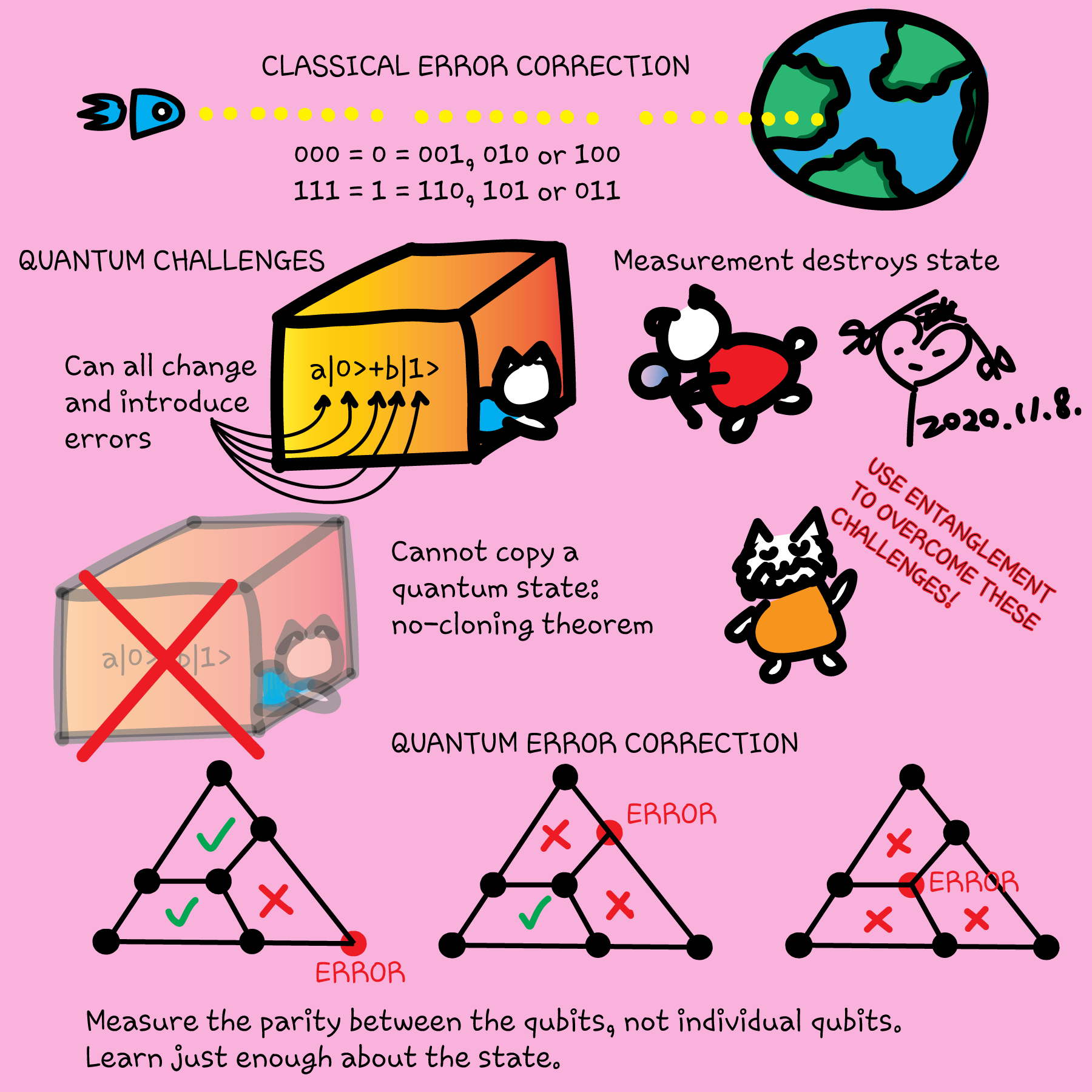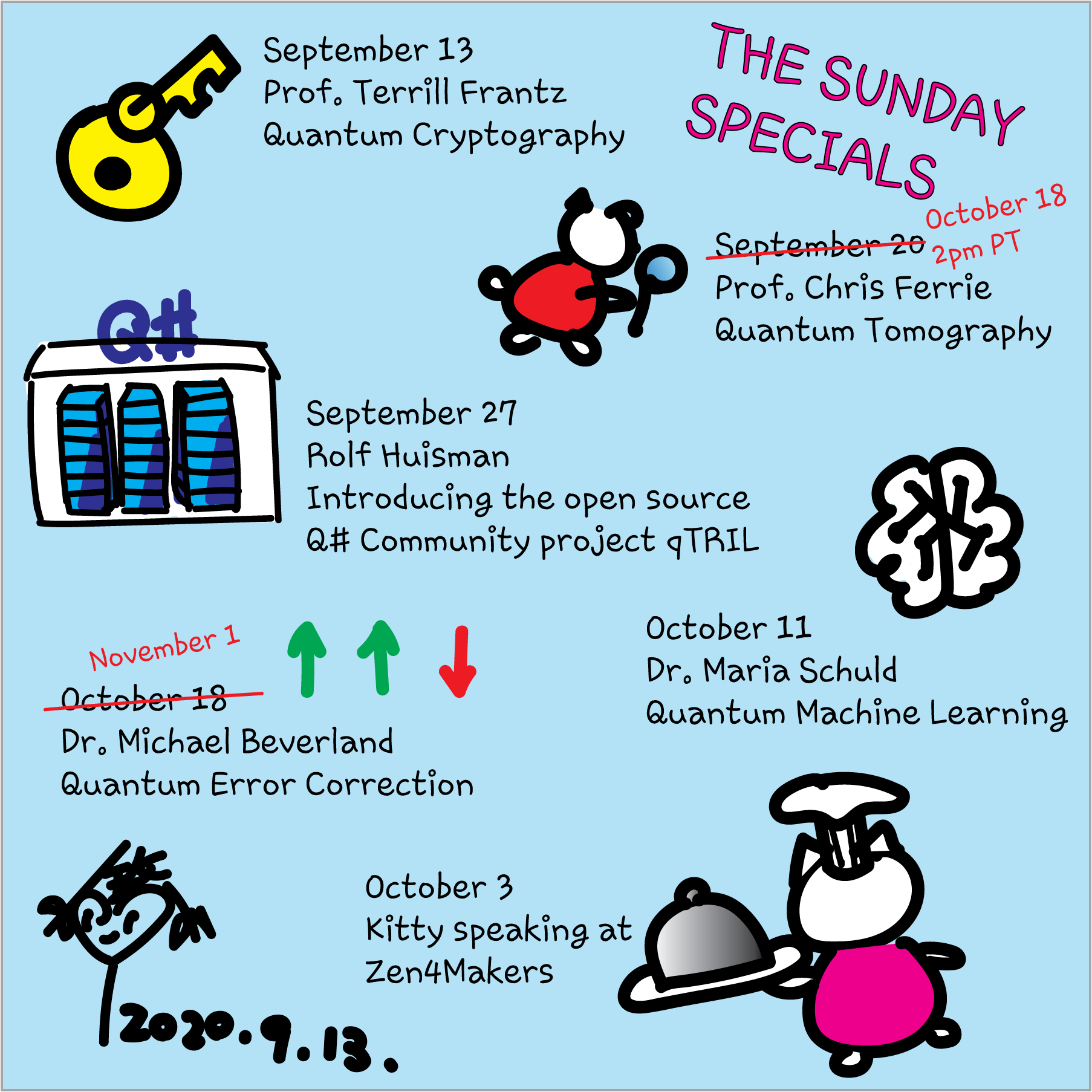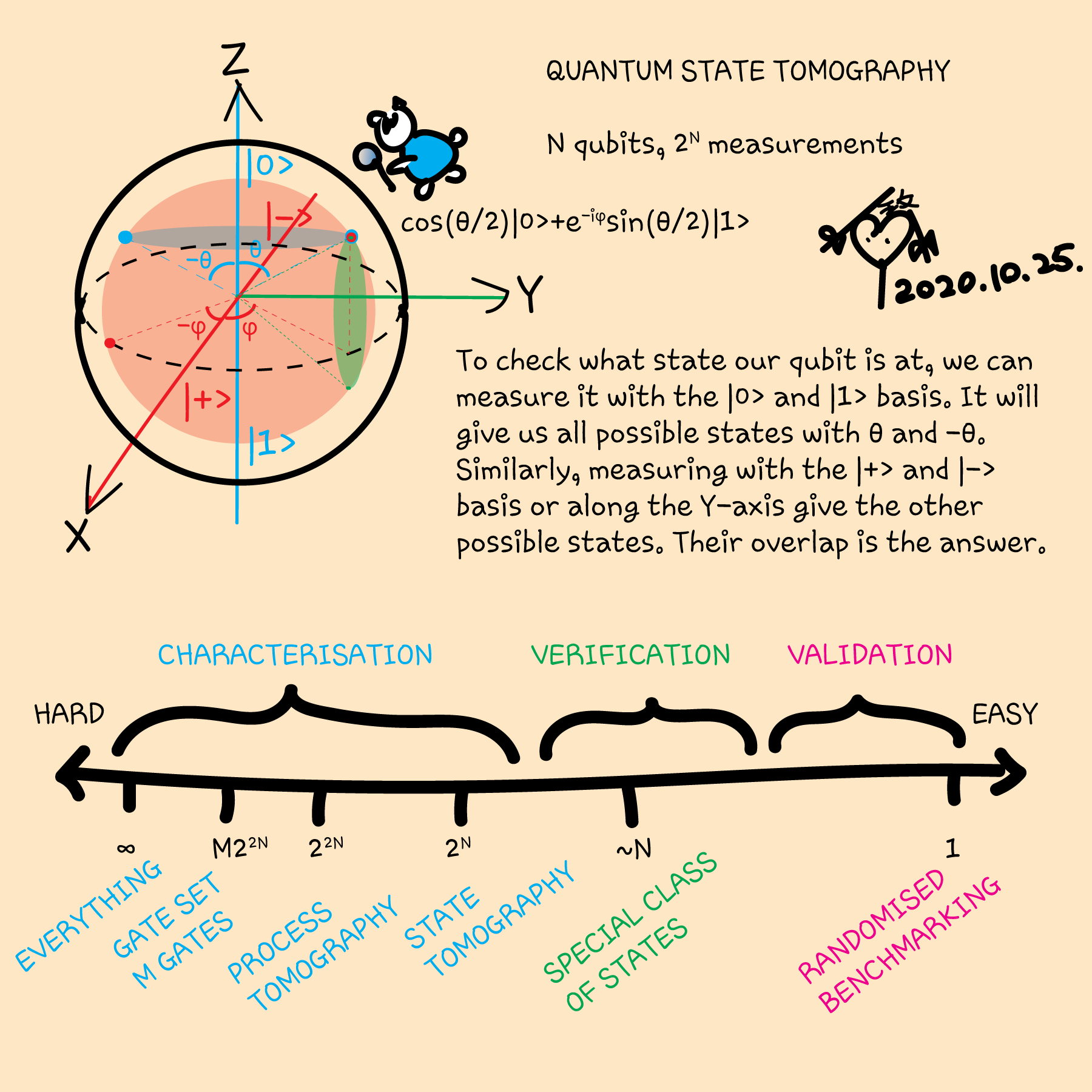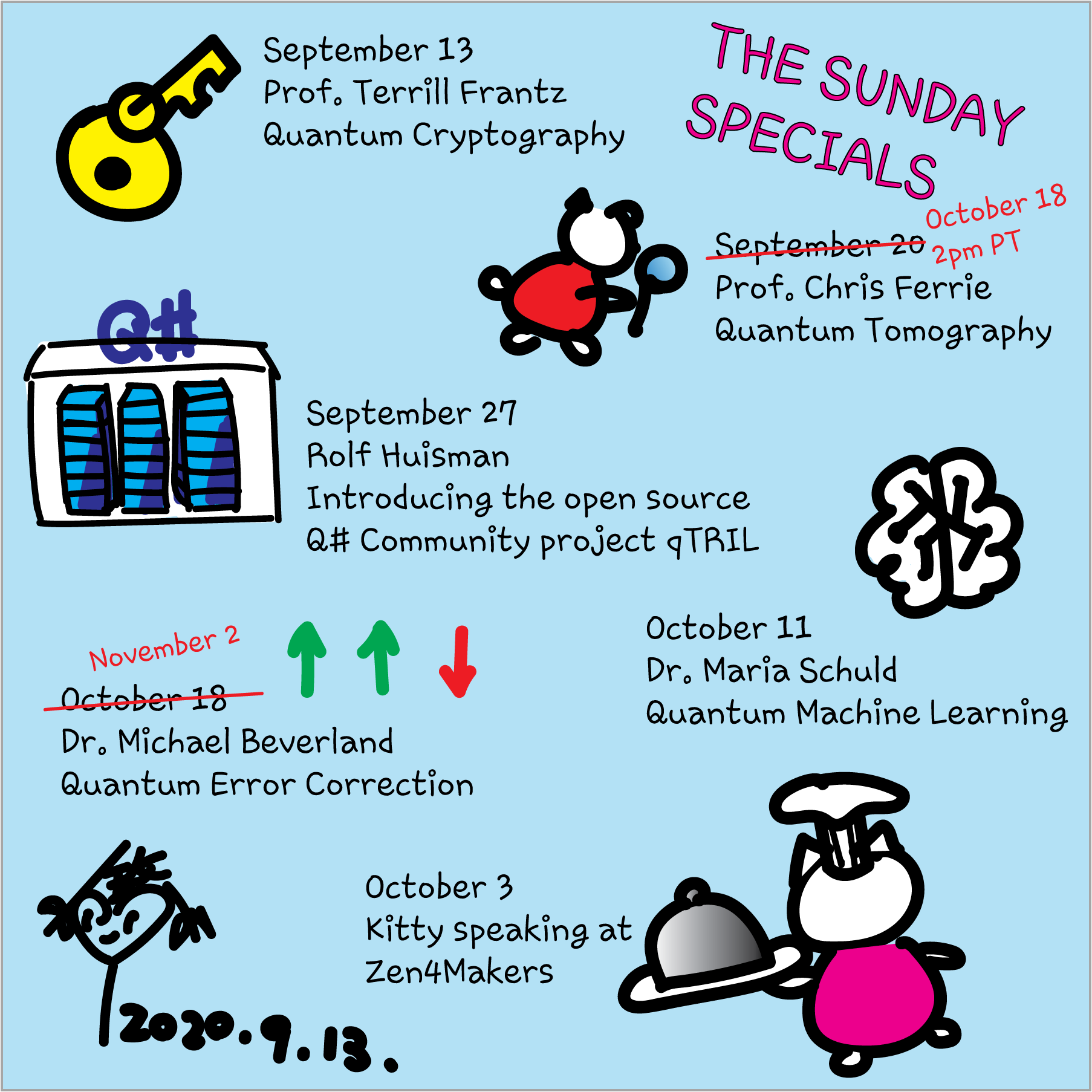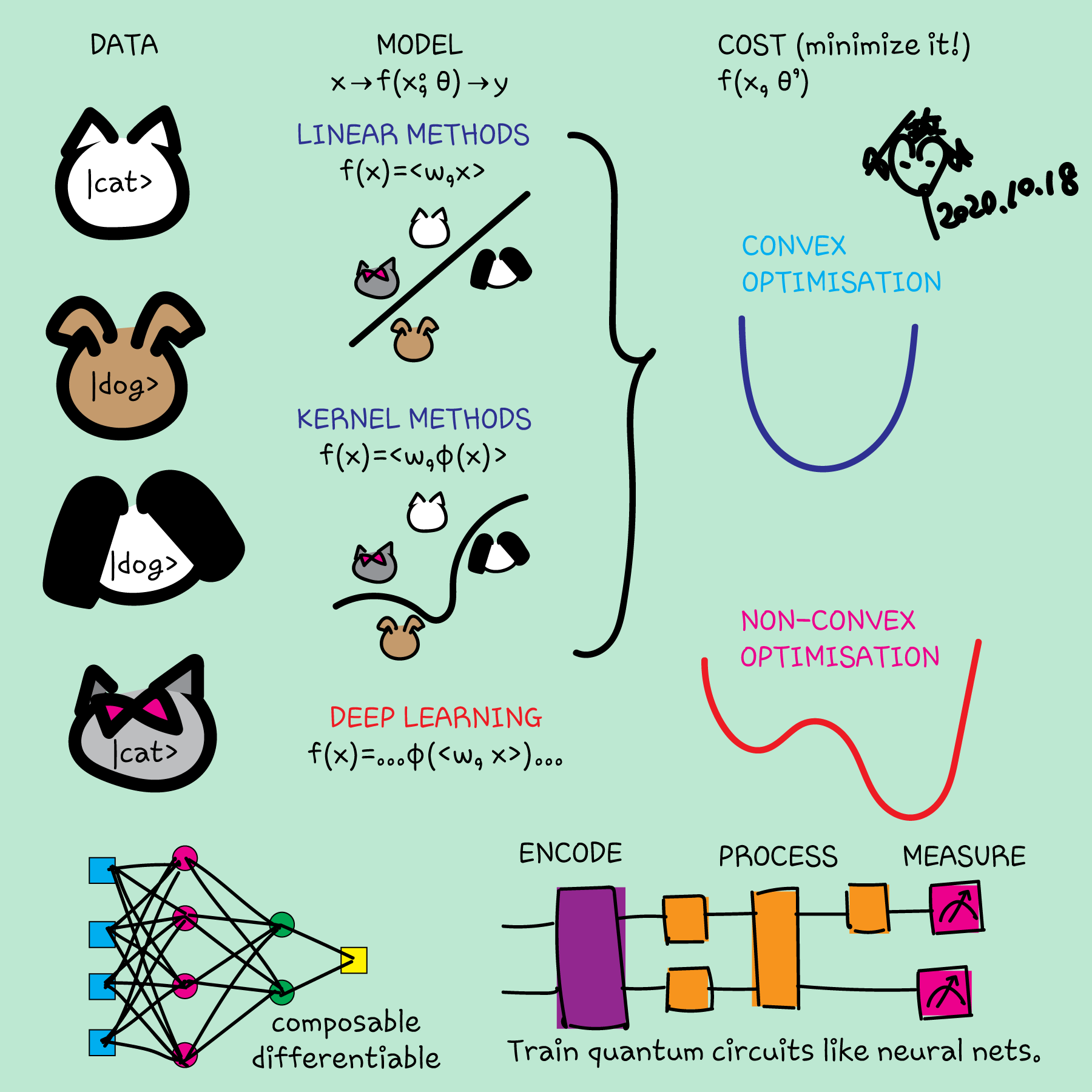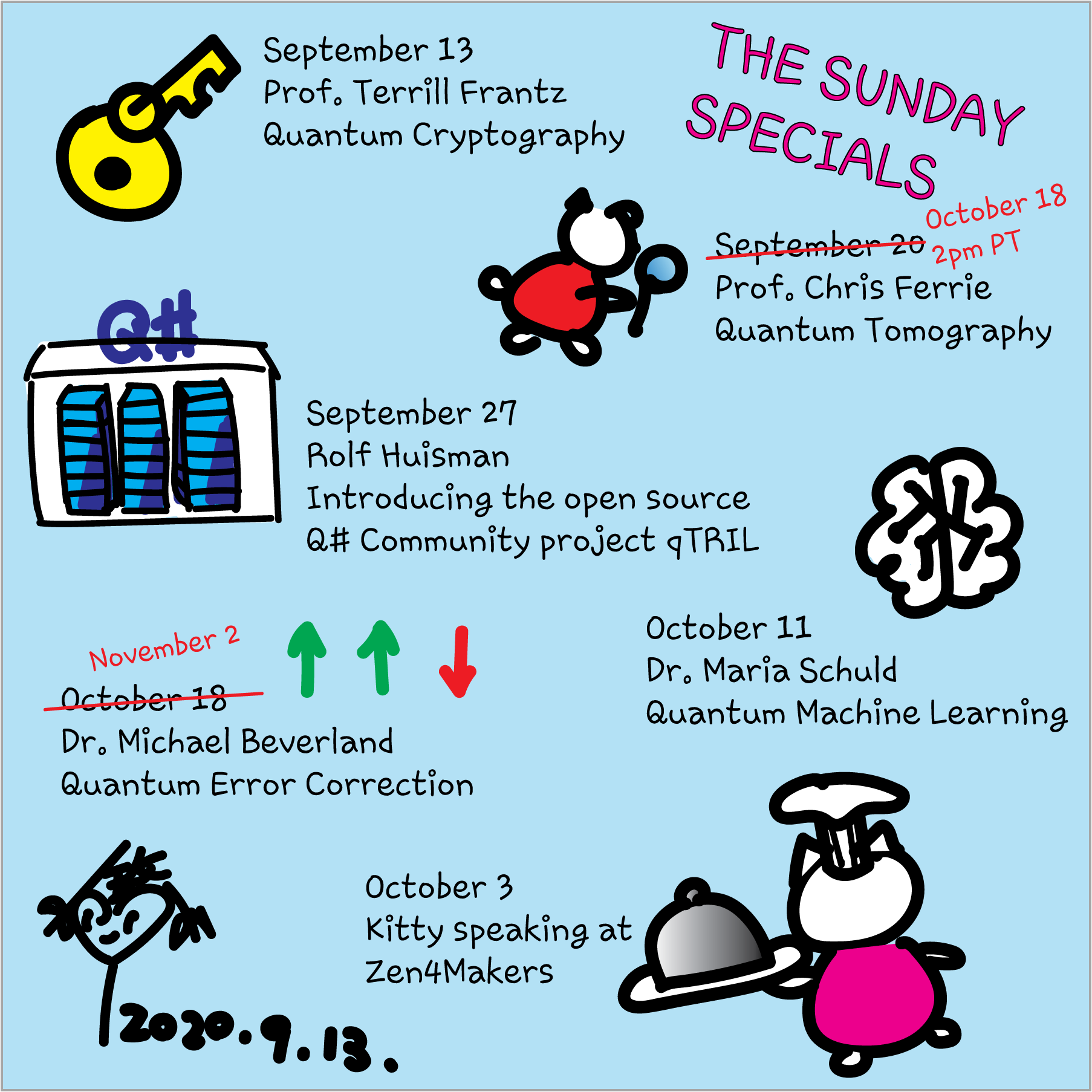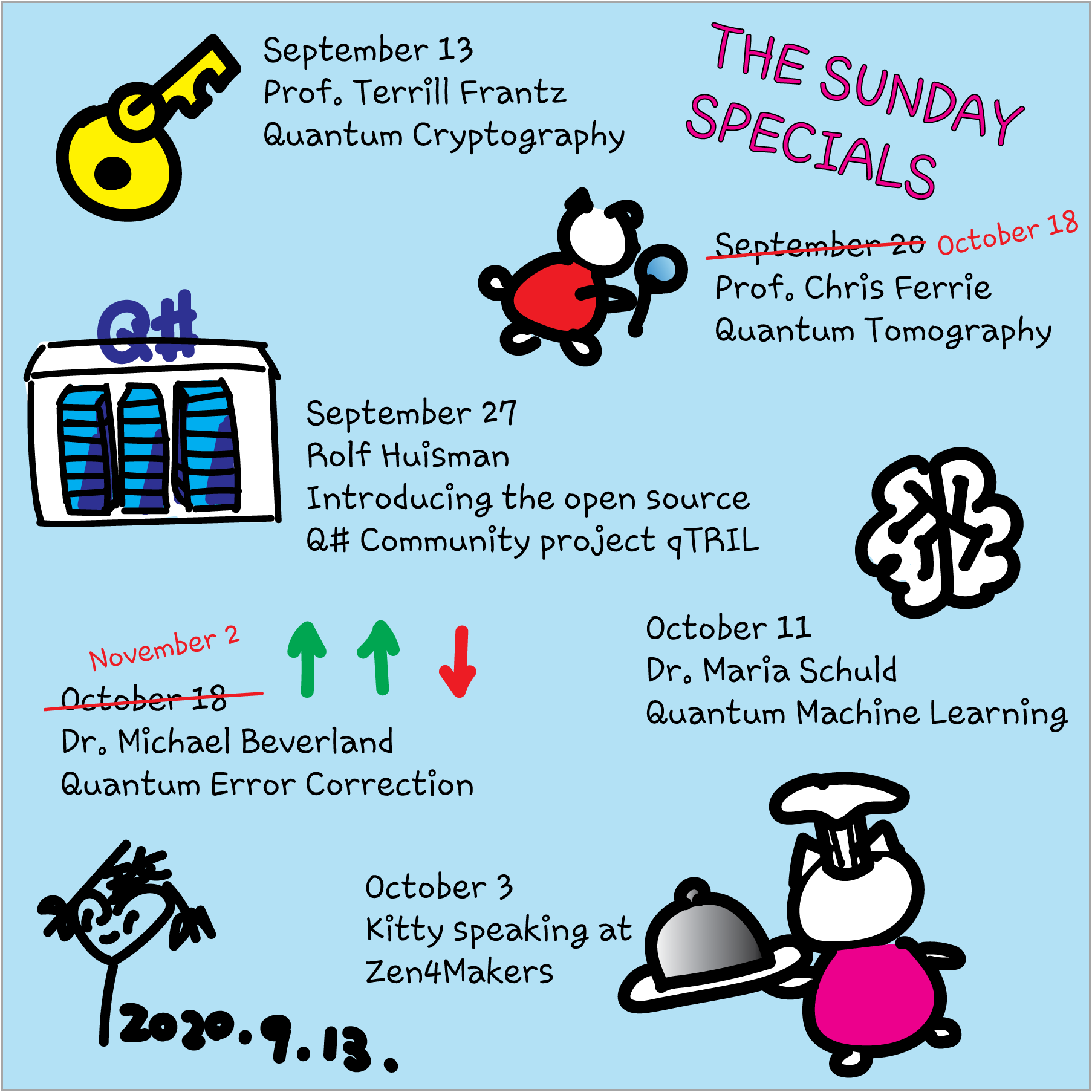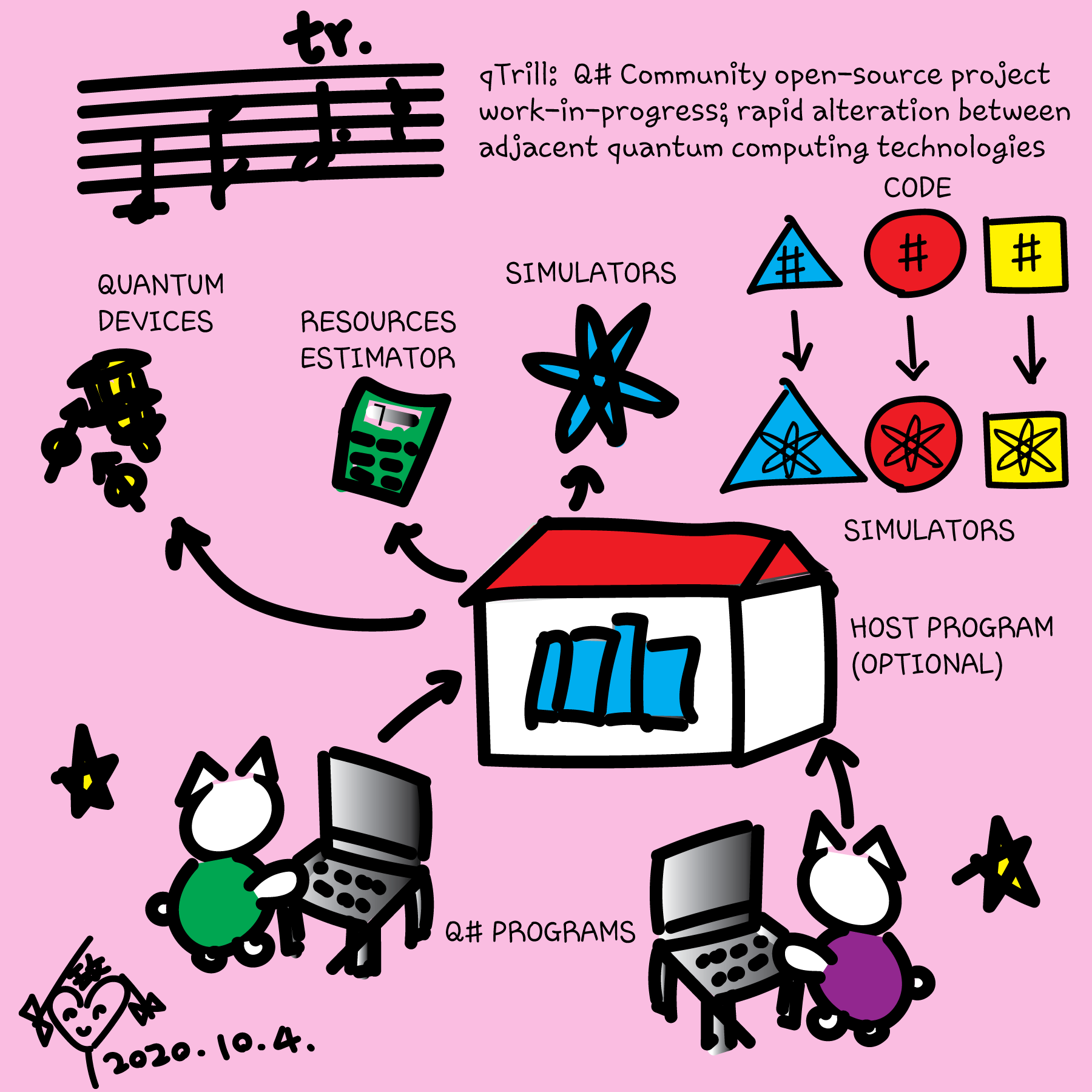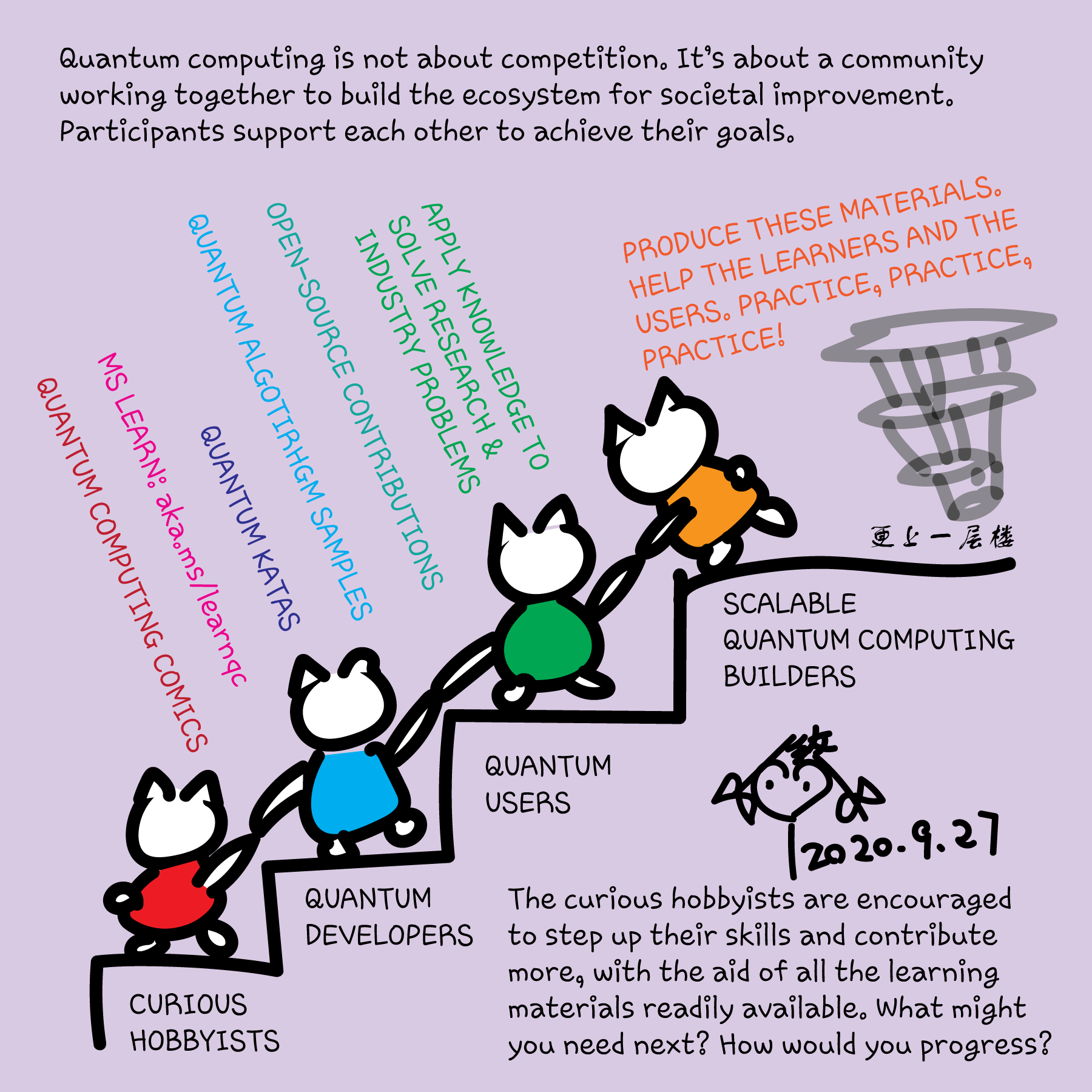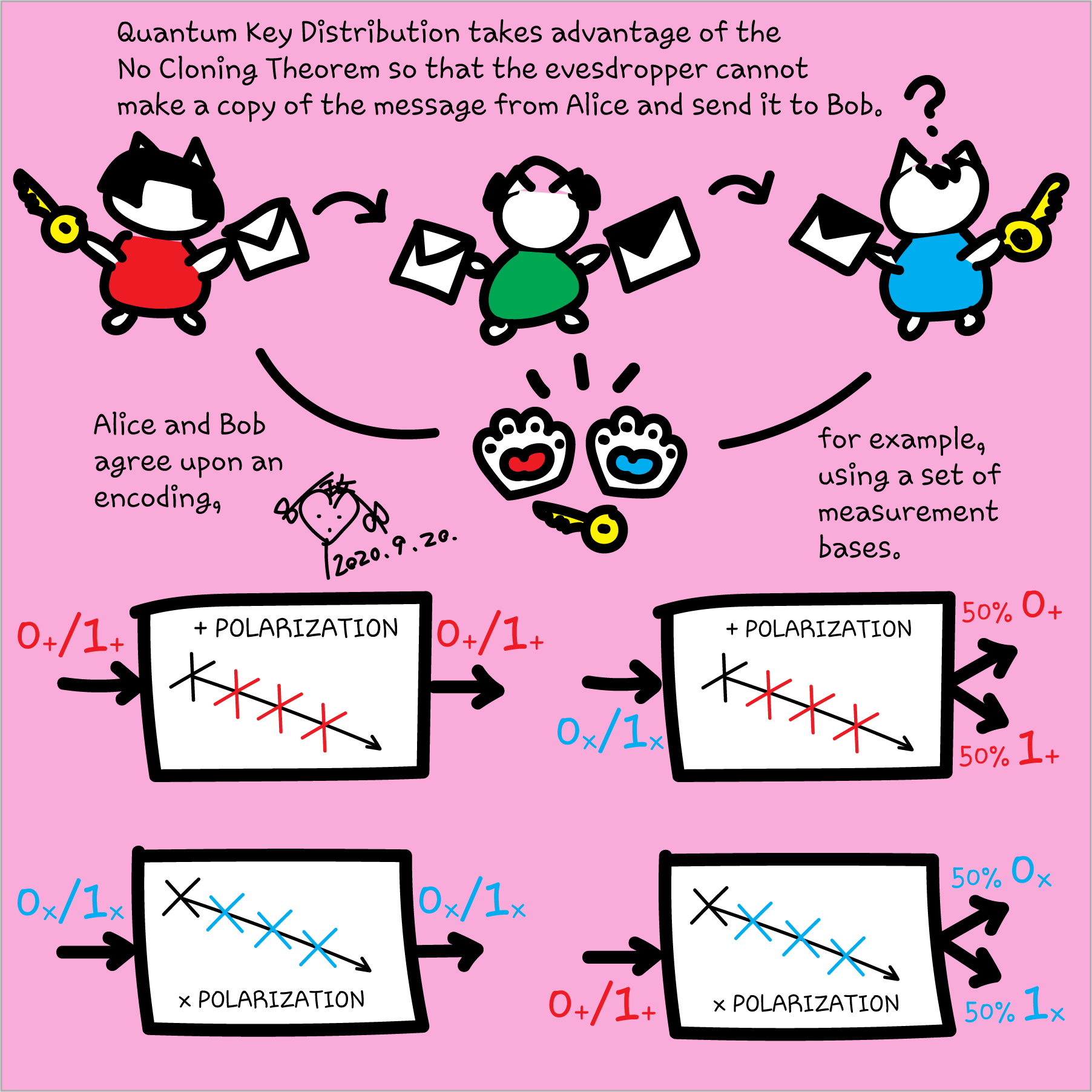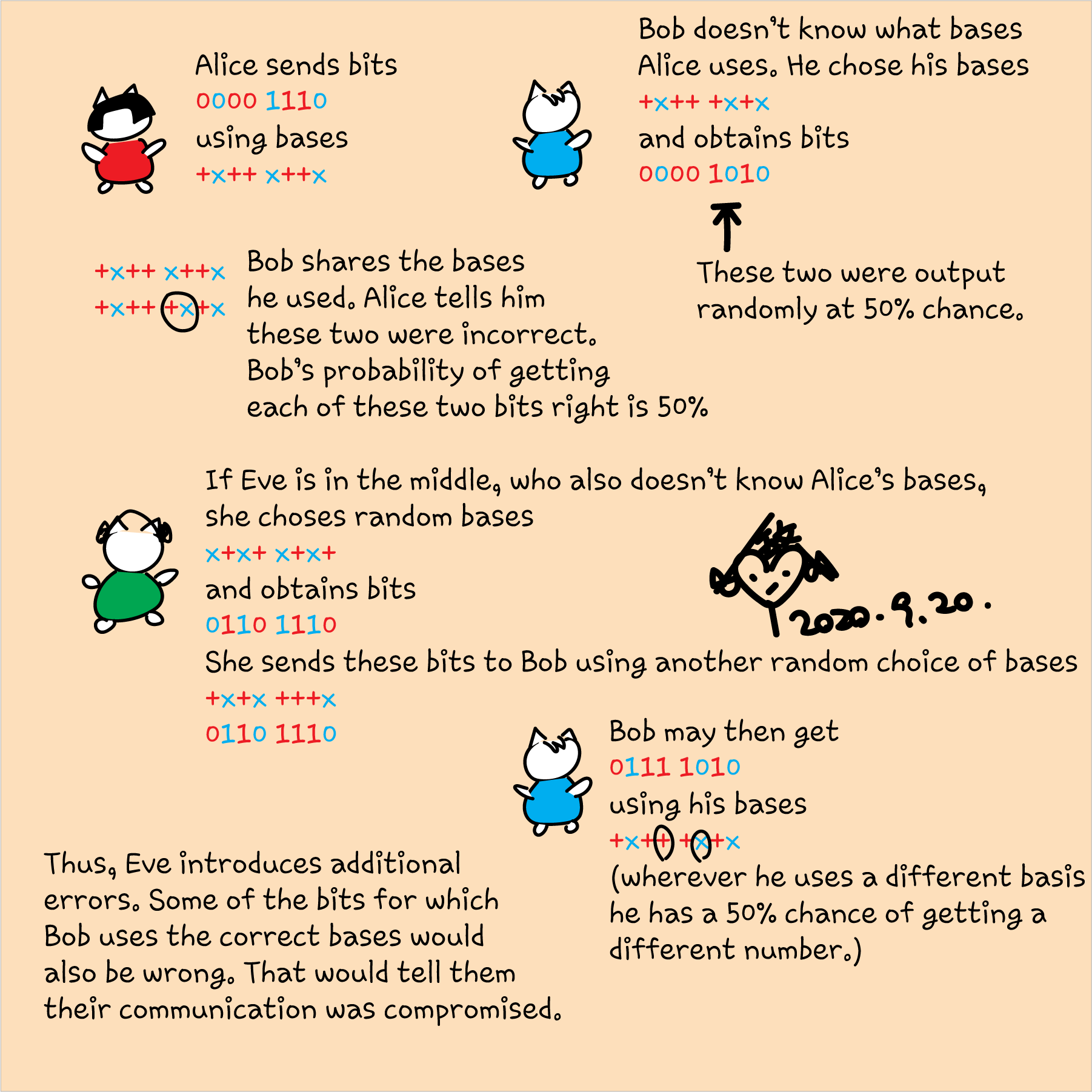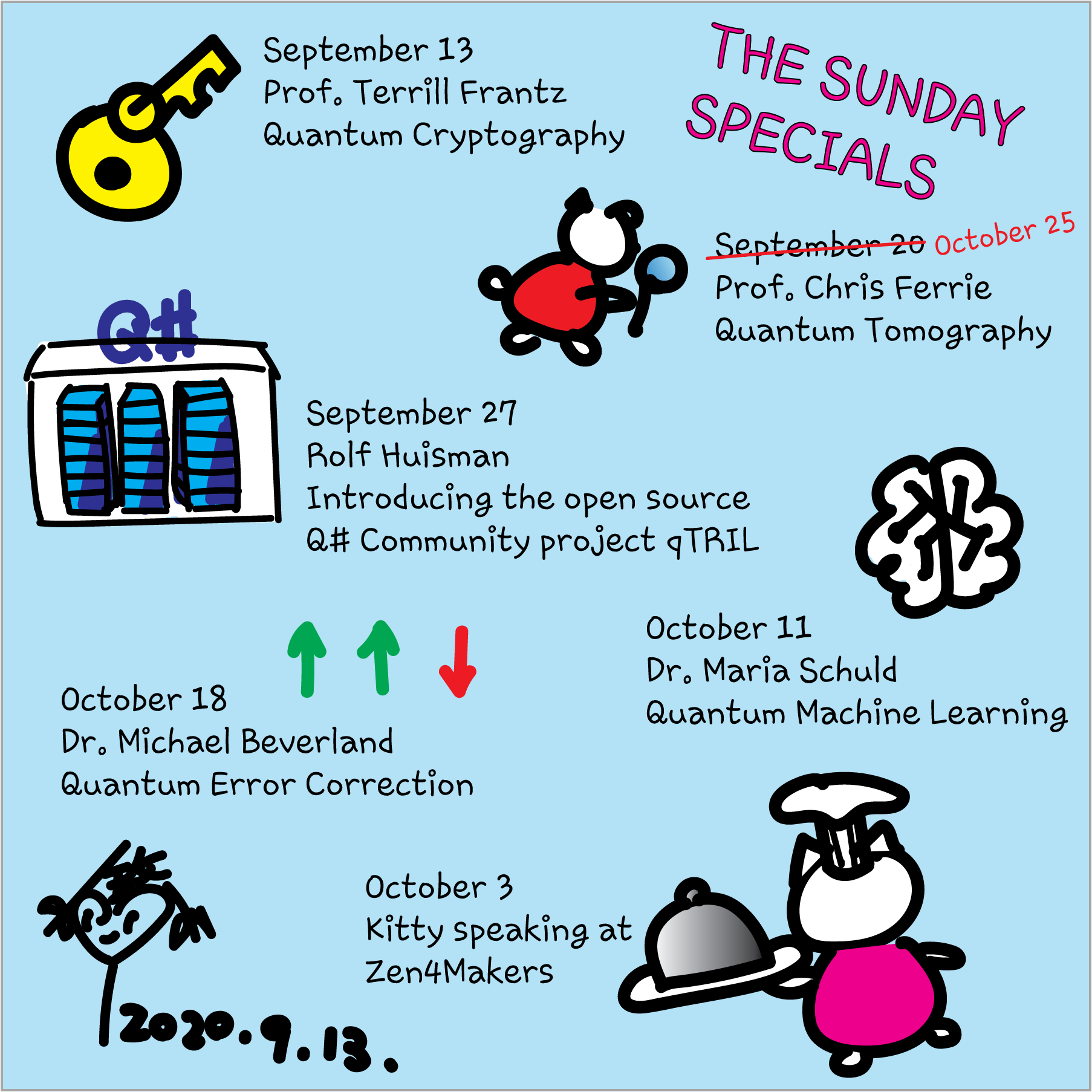-
Customized quantum learning experience
05/02/2021 at 10:47 • 1 commentEveryone interested in quantum computing comes from a different background with different needs. My recent project at Microsoft was building a webpage that allows you to get a list of learning resource catered to your needs.
An interactive page that not only provides a single link for all of Microsoft quantum learning resources, but also customizes a unique learning path for people, through the "Build your qubit" interaction. Try it out, build your own qubits, share a screenshot or link to the page
https://azure.com/quantum/learn
Don't you just love this kind of creativity applied in hardcore technical fields? This is my 3rd baby at Microsoft Quantum <3
Microsoft Quantum Blog to learn more about the work:
-
New community-written book
05/02/2021 at 10:38 • 2 comments![Book cover: Reference Guide for Quantum Computing, a Microsoft Garage project]()
Reference Guide for Quantum Computing, a Microsoft Garage project - A community of quantum enthusiasts collaborated on a new book that was just published through the Microsoft Garage on GitHub. It is opensource so anyone can read and contribute to the writing via pull requests. Looking forward to seeing your contributions and addition to the author list.
It is hands-on with programming exercises:
- Phase 1 introduces the basics, including the basic linear algebra, quantum states and quantum circuit diagrams
- Phase 2 will use the concepts from Phase 1 to build the algorithms that are central to quantum computing
- Phase 3 covers the real-world applications of quantum computing, along with a description of the latest hardware architectures being proposed to realize the vision of scalable quantum computing
Read & Write: https://github.com/microsoft/Reference-Guide-For-Quantum-Computing-A-Microsoft-Garage-Project
Garage project and team: https://www.microsoft.com/en-us/garage/profiles/reference-guide-for-quantum-computing/
Learn more about the project: https://www.microsoft.com/en-us/garage/blog/2021/04/reference-guide-for-quantum-computing/
-
Season Finale 2020
11/08/2020 at 17:51 • 0 commentsNotes from the last Hackaday Quantum Computing class last week on quantum error correction by Dr. Michael Beverland. Recording below.
And that's a wrap for this year! I learned a lot by teaching the class on Sunday since March and digesting complex ideas into drawings. Hope you enjoyed it as much as I did. All the recordings can be found here.
We also have a cartoon "textbook" which can be found in 13 markets on Amazon. Search ASIN : B08HGLPZXP
See you in future classes!
![]()
![]()
-
Guest lecture 5: Error Correction
11/01/2020 at 14:48 • 0 commentsToday is the last quantum computing class of the year at Hackaday and Microsoft Reactor. Make sure to tune in at 11:30 am PT (note the daylight saving time shift) for the season finale on quantum error correction by guest lecturer, Dr. Michael Beverland.
Abstract:
Why have you never experienced superposition in every day life, like a state of Schrodinger's cat being both dead and alive? The reason of course is that noise causes decoherence of the superposition state, collapsing it into either of the two parts of the two cases. To build a large scale quantum computer we need special techniques to overcome these effects and protect the information from collapsing their precious superposition. Today we will cover the field of Quantum Error Correction which is tasked with this great challenge.
Bio:
Michael Beverland is a senior researcher in Microsoft Quantum, specializing in quantum error correction and fault tolerance. He did his postdoctoral work with Krysta Svore at Microsoft Research, his doctoral work with John Preskill at Caltech, and undergraduate studies in Cambridge, England. His research interests span the following topics: topological codes, universal quantum gates, scalable fault-tolerant quantum computing, code switching, noise models, and statistical mechanical approaches to quantum error correction.
![]()
![]()
-
No class on Oct 25
10/25/2020 at 15:58 • 0 commentsNotes from last week's class by Prof. Chris Ferrie's on Quantum Tomography.
No class today on Oct 25. Come back next week for Quantum Error Correction by Dr. Michael Beverland.
![]()
![]()
-
Oct 18 Guest lecture
10/18/2020 at 14:59 • 1 commentHere's the condensed notes from Dr. Maria Schuld's QML class last Sunday. Note today's class by Prof. Chris Ferrie is at a later time.
![]()
![]()
Abstract:
You might have done a bit of self-study. You might have participated in a quantum hackathon. You might have got an awesome certificate from Kitty — and had it printed on a mug! You might have even implemented a quantum algorithm on a cloud-based quantum computer. By all accounts, you might have become a quantum coder. That’s great, because I have a problem. Someone gave me this quantum device, but I have no way of proving it really is a quantum device! Can you help me? Quantum tomography defines the problem of characterising an unknown quantum device. Unlike deductively stepping through a quantum algorithm to find out what the output is, quantum tomography gives you the output and asks how it came to be. Since quantum physics is probabilistic, this is an inductive problem — there is no unique solution. That is maybe a bit frustrating because finding out what a device does is important. Let me tell you about it.
Speaker Bio:
Chris Ferrie is an Associate Professor at the University of Technology Sydney and the Centre for Quantum Software and Information. His research interests include quantum estimation and control, and, in particular, the use of machine learning to solve statistical problems in quantum information science. He obtained his PhD in Applied Mathematics from the Institute for Quantum Computing and University of
Waterloo (Canada) in 2012. Chris’s passion for communicating science has led from the most esoteric topics of mathematical physics to more recently writing children’s books, such as Quantum Physics for Babies, and a whole collection of other titles that make science accessible even for the youngest children. -
Oct 11 Guest lecture
10/11/2020 at 13:26 • 0 commentsDr. Maria Schuld, Xanadu and University of KwaZulu-Natal in Durban, South Africa, Quantum Machine Learning
Note some changes in schedule for next two guest lectures.
![]()
Abstract:
This talk is a guided tour through the emerging research discipline of quantum machine learning, which investigates how quantum computers could be used for "intelligent" data analysis. A focus will be the strategy of optimizing the physical parameters of a quantum circuit in order to train it like a neural network. We will try to understand what the resulting models look like, how they can be integrated into modern machine learning pipelines, and what the most pressing open questions are.Speaker Bio:
Maria Schuld works as a senior researcher for the Toronto-based quantum computing start-up Xanadu, as well as for the Big Data and Informatics Flagship of the University of KwaZulu-Natal in Durban, South Africa, from which she received her PhD in theoretical physics in 2017. She co-authored the book "Supervised Learning with Quantum Computers" (Springer 2018) and is a lead developer of the PennyLane software framework for quantum differentiable programming. Besides her research on the intersection of quantum computing and machine learning, Maria has a postgraduate degree in political science, and a keen interest in the interplay between emerging technologies and society. -
Several annoucements
10/04/2020 at 14:01 • 0 commentsLearn about project qTrill from Rolf Huisman presentation and demo at https://lnkd.in/dY6_duU
As announced, we won't have a quantum computing class today at Hackaday (I'm doing a review of a robotics arm on Instagram Live).
My talk at Zen4Quantum yesterday on Grover's algorithm recording here: https://lnkd.in/dy3WQXN
Also join us for #Hacktoberfest . We are doing a kickoff on Oct 8: https://lnkd.in/dR69GCc![]()
-
Guest lecture 2: open source Q# Community project qTRIL
09/27/2020 at 14:33 • 0 commentsI'd like to see more quantum curious become quantum professionals.
![]()
Today's guest lecture:
Rolf Huisman, Q# Community, Introducing the open source Q# Community project qTRIL
Abstract:
We from the Q# Community are group of folks who are excited about Quantum Programming! We maintain and collect open source projects related to the Q# programming language to make it even more useful and pleasant to use. Because the current physical Quantum Computers are still limited power and functionality, a lot of development is done on Quantum simulators. The integrated simulators of Quantum Development Kit (QDK) are often enough, but depending on your hardware there might be other simulators that would be better suited for your task. Our latest project qTrill, makes it possible to run Microsoft Q# programs on those tailored simulators. We can make that work by plugging into the extensibility of the runtime, so let's run through how that works and how you can add your own.
Speaker Bio:
Rolf is an experimental technology enthusiast who likes playing with technologies which aren’t mainstream already. After tasting FPGA's for high performance computing, he got introduced to Quantum Computing after which he got addicted to it. Together with Sarah Kaiser he maintains the Q# community, which is a space for community-driven open source projects and contribution libraries for Q# Quantum Computing language. During his daytime job Rolf works as an enterprise security architect within a large international bank. His personal interests include experimental technologies, high performance computing, analog electronics, security and discrete mathematics. In his free time, next to reverse engineering systems and writing code, he builds machines like 3D printers, CNC machines, and FPGA processor boards.Questions and answers captured in the class:
Some were answered in the chat and some were answered in the class. Please watch recording if you don't find the answer to your questions.
[8:49 PM] skaiser (Guest) If you want to join the Q# community slack: http://slack.qsharp.community
[8:56 PM] Kitty YeungMS Learn module link: aka.ms/learnqc
[8:57 PM] Sumit Kaul (Guest) Was the quantumclass in c#?
[8:58 PM] Sumit Kaul (Guest) In stabiliserprocessor?[9:00 PM] skaiser (Guest) qsharp-community/chp-sim: CHP Simulator for Q# (github.com)
[9:02 PM] s1m0n (Guest) @skaiser all algorithms, do you gonna code in c# or q# DSL?
[9:06 PM] skaiser (Guest) s1m0n the algorithms we will be implementing in http://quantumalgorithmzoo.org/ (github.com) will be done in Q#. The C# Rolf Huisman (Guest) is showing is for some of the back-end simulators that we want to try running the Q# code with.
[9:02 PM] Sumit Kaul (Guest) So q# also complies to IL?
[9:05 PM] Sumit Kaul (Guest) Please if you could touch on quantum memory architecture and MS plan for how they are looking at tackling quantum memory
[9:08 PM] Sumit Kaul (Guest) Can we use IOC to supply simulator on the fly using some kind of global bootstrap too or there is something like this already?
[9:09 PM] skaiser (Guest) Sumit Kaul not from MS, but quantum memory or qRAM is a pretty open question right now for the community, especially when it comes to hardware. Basically, the cost of implementing qRAM can in some cases outweigh the advantages of the quantum algorithms using them[9:11 PM] s1m0n (Guest) @Rolf: Azure already offer any type q# services?
[9:11 PM] Sumit Kaul (Guest) So any thing what’s ms plan for qram?
[9:12 PM] skaiser (Guest) s1m0n There is a service called Azure Quantum Azure Quantum | Microsoft Azure where you can sign up for the private preview
[9:13 PM] Sumit Kaul (Guest) Thank you, this helps to explain nuts and bolts.. question I had for a while
[9:13 PM] skaiser (Guest) also if you want to learn more about Azure quatum https://myignite.microsoft.com/sessions/37e835e8-d8d4-40c7-8cdc-4dceee0bddd5[9:14 PM] Sumit Kaul (Guest) A quick one, how is data acquisition, from a data point
[9:14 PM] Sumit Kaul (Guest) Like for eg a home brew quantum computer
[9:14 PM] skaiser (Guest) If you want to learn more about our qRAM project: Webinar: Implementing qRAM in Q# - A case study in community driven quantum development - YouTube -
Quantum Key Distribution
09/20/2020 at 14:29 • 0 commentsHere is a summary of last week's intro to quantum key distribution by Prof. Terrill Frantz. Note the guest lecture by Prof. Chris Ferrie scheduled for today is postponed to October 25. There's no topic to discuss for today. Register to attend Microsoft Ignite and take the new quantum modules on MS Learn.
![]()
![]()
![]()
Quantum Computing through Comics
Follow here for comics and classes on Quantum Computing updates every week.
 artbyphysicistkitty
artbyphysicistkitty

